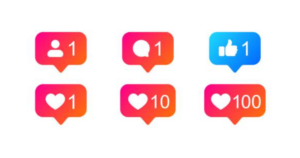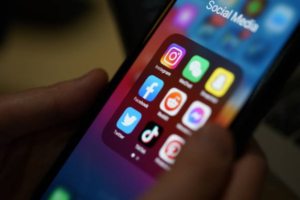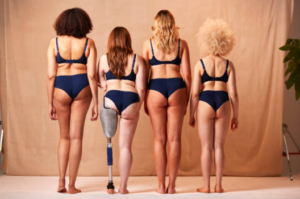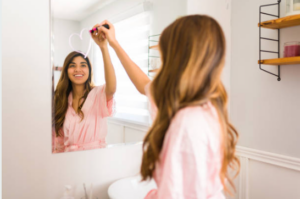Analyzing its Impact on Self-Perception

In an era dominated by technology and connectivity, social media platforms have revolutionized the way we interact, communicate, and consume information. With a simple swipe of a finger, we can be transported into a world of carefully curated images, aspirational lifestyles, and the latest trends in beauty and fashion. However, while social media provides us with a global stage to express ourselves, connect with others, and explore our interests, it has also given rise to a complex web of beauty standards that have a profound impact on our self-perception.
In this in-depth exploration, we will delve into the intricate relationship between social media and beauty standards, dissect the various ways it affects our perception of ourselves, and discuss strategies to navigate this digital landscape while preserving our mental and emotional well-being.
From Magazines to Pixels
Beauty standards have always existed, molded by cultural norms, historical contexts, and societal expectations. However, the advent of social media has introduced an unprecedented level of reach and influence, transforming how these standards are both portrayed and perceived. The transition from traditional media outlets like magazines to the digital realm has amplified the impact of beauty ideals, ushering in a new era where pixels, filters, and hashtags play a significant role in shaping our self-perception.
Before the digital age, beauty standards were largely shaped by traditional media platforms such as magazines, television, and movies. These outlets presented a curated and often homogenized version of beauty, emphasizing flawless complexions, slender figures, and symmetrical features. The limited scope of traditional media allowed for a certain level of control over the images and narratives presented to the public. However, the lack of inclusivity and the perpetuation of unrealistic ideals persisted, often leading to feelings of inadequacy and a distorted self-image.
The rise of social media platforms marked a seismic shift in the way beauty is portrayed and consumed. With platforms like Instagram, Facebook, and TikTok, individuals gained the power to create and curate their narratives, sharing snippets of their lives and showcasing their unique interpretations of beauty. Suddenly, everyone had access to a global stage, where self-expression and personal branding merged with the pursuit of likes, followers, and influence.
Social media influencers, individuals who have amassed large followings based on their expertise or lifestyle, have become prominent figures in shaping contemporary beauty ideals. Influencers often blur the lines between personal and professional, offering glimpses into their daily routines, beauty rituals, and the products they use. This accessibility, coupled with the aspirational lifestyles they portray, can inadvertently set new benchmarks for beauty.

The Perfection Paradox
One of the most significant impacts of social media on beauty standards is the perpetuation of a culture of perfection. Filters, photo-editing apps, and curated content contribute to an image of flawlessness that is often far from reality. Influencers and celebrities often present an idealized version of themselves, complete with flawless skin, sculpted bodies, and impeccable makeup. As a result, many individuals find themselves comparing their real-life appearance to these digitally enhanced images, leading to feelings of inadequacy and a distorted self-perception.
The concept of social comparison theory, introduced by psychologist Leon Festinger, underscores how individuals naturally evaluate themselves by comparing their attributes to those of others. On social media, these comparisons are amplified, as users are exposed to a multitude of individuals, each portraying their best moments. This phenomenon can lead to the perception that others are leading more successful, beautiful, and perfect lives, fostering feelings of envy and inferiority.
The Perfection Paradox has far-reaching implications for mental health, contributing to a range of issues:
- Body Dissatisfaction: Comparing oneself to digitally enhanced images can lead to body dissatisfaction, which has been linked to eating disorders, depression, and anxiety.
- Low Self-Esteem: The constant pursuit of an unattainable ideal can erode self-esteem and self-worth, leading individuals to believe they fall short of societal expectations.
- Negative Self-Talk: Negative self-talk can intensify as individuals internalize the notion that they are not good enough compared to the flawless images they encounter.
- Emotional Distress: The emotional distress caused by feeling inadequate can lead to emotional exhaustion, burnout, and heightened stress levels.
While social media has opened the door to diverse representation and body positivity, it has also magnified existing beauty standards that favor certain traits. Beauty trends like contouring, waist trainers, and edited selfies can perpetuate a narrow definition of beauty that marginalizes individuals who don’t fit into these molds. However, some influencers and movements are challenging these norms by embracing and celebrating all body types, skin tones, and identities.
Likes, comments, and followers serve as digital affirmations – a way for others to acknowledge and validate our content and presence. When a post receives a flurry of likes and comments, it can trigger feelings of acceptance, satisfaction, and even a sense of accomplishment. However, this surge of positive emotions is often temporary, and the desire for consistent validation can lead to a continuous cycle of seeking external approval.
The psychology behind the feedback loop is deeply rooted in the brain’s reward system. Every time we receive a like, comment, or follower, our brain releases dopamine – a neurotransmitter associated with pleasure and reward. This neurological response is akin to the feeling of accomplishment and happiness, reinforcing the behavior of seeking validation through online engagement.
However, just like any addictive behavior, the dopamine effect can lead to a dependency on online validation to regulate mood and self-esteem. When the dopamine rush subsides, it can leave individuals craving more likes, comments, and followers, perpetuating a cycle of seeking external affirmation for a sense of worth.

Digital Disconnect: Real vs. Virtual Self
As we curate our online presence, there is a risk of creating a significant divide between our real selves and our virtual personas. This disconnect can lead to feelings of anxiety, depression, and loneliness. The pressure to maintain a certain image online can prevent individuals from fully embracing their authentic selves. Moreover, the constant comparison to others’ seemingly perfect lives can erode self-confidence and contribute to feelings of isolation.
The digital disconnect can also contribute to the pursuit of perfection – an unattainable standard where individuals feel compelled to meet the unrealistic benchmarks set by their digital personas. The pressure to maintain a certain image online can lead to anxiety about how one is perceived, resulting in constant self-monitoring and overthinking of every post, photo, and caption.
The need to project a polished and enviable digital image can detract from authentic self-expression. This constant quest for validation and popularity can erode self-confidence and authenticity, preventing individuals from embracing their imperfections and sharing their true selves.
As the divide between the real and virtual selves widens, self-esteem can take a hit. The continuous comparison of one’s real life to the seemingly perfect lives of others online can lead to feelings of inadequacy, jealousy, and FOMO (Fear Of Missing Out). This can perpetuate a cycle of negative self-perception and foster a sense of isolation and loneliness.
Moreover, the digital disconnect can make individuals question their own worth and the value of their real-life experiences if they don’t align with the curated content they see online. This can create a dissonance between one’s true worth and the perceived worthiness based on online engagement and popularity.
Your social media feed is like your digital environment. Fill it with accounts that inspire, educate, and uplift you. Follow creators who promote body positivity, authenticity, and diverse representations of beauty. Unfollow or mute accounts that consistently trigger feelings of comparison, inadequacy, or negativity.
Shift your focus from portraying a perfect life to sharing authentic moments. Embrace vulnerability by acknowledging challenges, setbacks, and personal growth. By sharing your real experiences, you encourage genuine connections and create a more relatable and empathetic online community.
Establish boundaries around your social media use to prevent it from encroaching on your well-being. Designate specific times for scrolling and engage in offline activities that bring you joy, self-expression, and a sense of accomplishment.
Regularly disconnect from social media to recharge and reconnect with your offline life. This detox can help you regain perspective, reduce anxiety, and prevent the constant comparison that can erode self-esteem.
While social media offers a digital network, prioritize cultivating meaningful connections in your real life. Engaging in face-to-face interactions and nurturing authentic relationships can reinforce your sense of self-worth beyond online engagement.
Treat yourself with the same kindness and understanding you would offer a friend. Remember that no one is immune to self-doubt, and imperfections are part of being human. Practice self-compassion when negative self-talk arises.

Understand the concepts of photo editing, filters, and the difference between digital enhancement and reality. Recognizing the extent of digital alteration in images can help you distinguish between curated content and authentic representation.
The impact of social media on beauty standards is a multifaceted issue that demands thoughtful consideration. While it can exacerbate feelings of insecurity and inadequacy, social media also has the potential to challenge beauty norms, empower individuals, and foster a sense of community. To navigate this digital beauty landscape effectively, it’s essential to approach social media consumption mindfully, promote self-acceptance, and engage in meaningful online interactions that uplift and inspire. By recognizing the difference between online illusions and real-life authenticity, we can reclaim control over our self-perception and foster a healthier relationship with the digital world. After all, true beauty is found in embracing our uniqueness and allowing our light to shine authentically, both online and offline.




